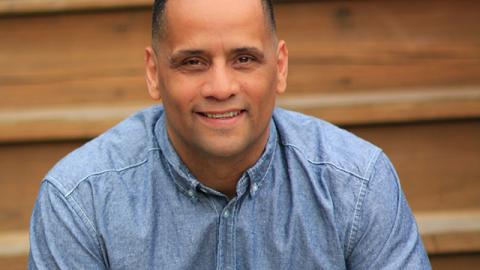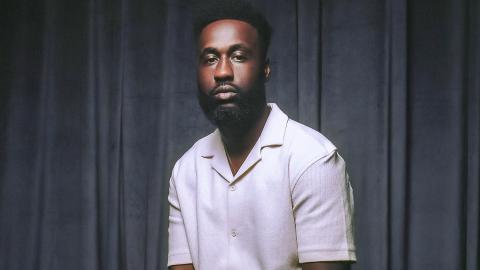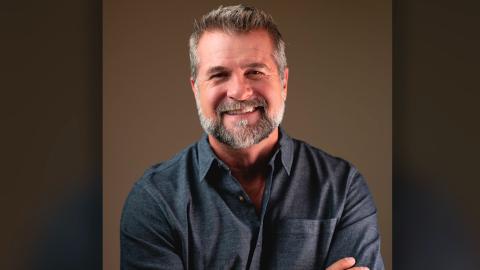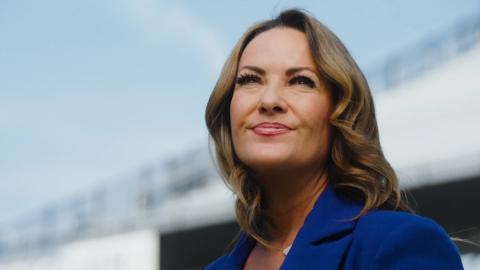
Pastor Choco De Jesus’ ‘Love Them Anyway’ a Practical Guide for Effectively Loving Others
If anything, the coronavirus pandemic that has disrupted our lives in so many ways, has forced us to re-evaluate and take stock of who we are as a people. And what we find is not always that attractive. It seems that our world has never been more desperate for unity and respect than it is right now. These emotional barriers of bitterness between races, political parties, and sexual orientation, are dividing rather than uniting us.
Sadly, many people see Christians as angry followers of God rather than helpful representatives of their faith who love their neighbor as they would love themselves.
In his latest book, Love Them Anyway: Finding Hope in a Divided World Gone Crazy, pastor Choco De Jesus inspires readers to love in the way that Jesus Christ loves humanity. His hope is that people would experience God’s love in a truly transformative manner and then demonstrate that love to others in a practical, tangible way.
I recently spoke with Pastor Choco about why the world is more desperate than it has ever been, why loving others is of the utmost importance, and a few best practices for hope overcoming hate.
Why do you think our world has never been more desperate than it is today for unity and respect for people from all walks of life?
I think more than ever today, the divide is very clear. It’s us and them. We knew that this divide existed, but today it is blatant and it's clearer. I think more than ever today, with Love Them Anyway, we'll begin to answer the question that Christians have. And here's the question. What do we do, Pastor Choco? We are such a divided culture with the political unrest and racial tension. Love is the common denominator. It is the currency of heaven. That's what we're called to do. We are called to love people.
What was the root or catalyst for writing Love Them Anyway? What took you into the writing space for this?
The genesis of the book is that I was sensing as I was traveling around the country, that there was like a volcano about to erupt. I felt like the church needed to have a response to what was about to happen. This is because I believe that how you respond to a cultural drift matters. And we, as Christians, we need to be able to respond appropriately to this volcano. Even before what happened to Minneapolis (George Floyd murder), what was happening in Oregon, I was sensing that the Lord has placed in my heart, that we, as the Church of Jesus Christ, better get ready to tap into the bank of heaven and withdraw love.
So many people believe that diplomacy, raw influence, and power is the key to solving the world’s problems. But you write that something else is the key. Why is love such a key component in making the world a better place?
I think that division comes so easily for people. If I don't agree with you, I'm going to create this stigma. I'm going to hate you. I'm going to talk bad about you on social media. That comes so naturally as human beings. If I disagree with you, we create this is war of division. Yet love demands that we do more and that we sacrifice. I tell people that there is a cost for reconciliation. The Bible says in Romans 5 that hope does not put us to shame because God's love has been poured into our hearts. Through whom? Through the Holy Spirit who has been given to us. When you think about why love is so important right now in the world we live in is because people see so much hatred and bitterness.
And if we, the Church, can go out there and not pick a side, this is important because we cannot lose our prophetic voice in this world. And I know that culture in 2020 was trying to get the Church involved in this fight. But no, it's neither left or right. We represent the lion from the Tribe of Judah. We don't represent the donkey or the elephant. As the Church, we need to be careful that we don't pick the left or the right. We are here on planet earth to be ambassadors of the Kingdom of Heaven, and be able to legislate what? Love, which comes from heaven. It doesn't come from the United States. It doesn't come from the president, the governor, or the mayor. This is who we are. And so that's why it's important more than ever, that people would know who we are by the way we love each other.
Why is concept of “love them anyway” so difficult for people to grasp? It seems that people just can't seem to get their heads around a simple concept.
Let me just be clear about Love Them Anyway. When I say love them anyway, it doesn't mean that I capitulate my convictions. I'm not going to do that. I'm not going to surrender. I'm not going to give up what I believe about the Bible. The Bible is my moral compass. It is my true north. So, when I say love them anyway, what I'm saying is that everybody has a "them". And to those who are reading this, you're them could be a husband who is wayward, a son who's on drugs, or a daughter that's in prostitution. That's your "them". In chapter three of my book, I write about my son, who in that season of his life of being a teenager, 16 years old, was out there doing marijuana and drinking. Well, he didn't learn that from me. He didn't learn that in our house. We didn't have drinks in our house. He learned that out in the streets, at his high school. And so, he became my “them”. I have a choice. And all your readers have a choice. What do I do with that “them” in my life? For you, it could be someone who's having an issue with sexual identity. You love them. You love them without capitulating your conviction. You love them. And you can love them through your love. Our love is perverted. Our love is conditional, but the love of God is unconditional. We love people through the eyes of God. I remember going to my son's room and saying to him, son, I said, do you think you're stronger than me?
I will pray this out of you. Your mother and I will fast and pray. And I said to him, nothing you do can make me love you more or less, but you are in control of how pleased I am with you. And right now, I'm not pleased with you. Nothing you do can make me love you more or less. And we have to be able to be there in those seasons of life for people who are struggling with pornography, who are struggling with their sexual identity. That's why I said, love them. Love them anyway. Everyone has a “them” in their life. In order to love them, we need to withdraw from that bank of heaven. says this. “By this, all people will know that you are my disciples if you have love for one another.” And so, we need to be able to bring that into the world we live in. Hey churches, let's go outside. Let's go outside and find people who don't look like us. Don't walk like us. Don't dress up like us. And let's just love them.
What does that look like for the Church? How can we corporately be able to reach out and really show this concept of “love them anyway”?
For a local church of 50, 100, 1,000 or more here's what it looks like. You find a need in your community. Now your need may be that there is a 501c3 shelter. It may be gay people that are teenagers and they're homeless. At this point, what you should care about as the church is that you go in and say, “This is not right. These kids are sleeping on the floor. So, let's go ahead and buy them some bunk beds. Let's bless them.” Why not? We're not affirming their lifestyle. We're just saying that this is not right. This is what that looks like. Going out to your local schools and engaging it. Talk to the principals and say, hey, what can we do to help and feed these people?
When you start feeding or clothing folks, you don't ask them if they're straight or gay, white or black or Asian. No. You just do it because love compels us to do it. So, that's what that looks like. Getting out of your church and into your community, finding a need and say, can we help fill this need? Hey, pastors and leaders, you can’t do everything, but you can do something to spread the love of Jesus. And remember, you're an ambassador of the kingdom of heaven, and you’re there to spread His love.
Many people might feel like they already love enough. What examples do you give in the book, for those who resistant to this type of message?
In Mark 12, you have the story of the scribe that comes to Jesus. He comes up and he hears about a dispute. Specifically, this is . And he says, “Which commandment is the most important?” And Jesus answered, “The most important is this. Hear, oh Israel, the Lord thy God, the Lord is one. You shall love the Lord, your God with all your heart, with all your soul, with all your mind, and with all your strength.” Here we have a scenario, a scribe, a teacher of the law if you will, coming to Jesus and saying, “Hey, educate us. Tell us which is the greatest commandment.” And He tells them the second is this. “You shall love your neighbor as yourself.”
There is no other commandment greater than these: Love the Lord your God. You're all in with your heart, your soul, your mind, your strength. And second one? Love your neighbor. So, in the book, it gives you stories of the adulterous woman who is brought to Jesus and they say, “This woman is an adulterer.” And the law of Moses says we should stone her. What say you? Jesus kneels down and He's writing in the sand. Then He stands up and says, “Those without sin throw the first stone.” And there you have Jesus, the son of God, being the mediator. He didn't pick a side, left or right. He was in the middle. And He just said to the people, the scribes, the teachers, and the pharisees, “Hey, if you haven't sinned throw the first stone.” When they leave, He says to the lady, “Where are your accusers?” She says, “They're not here.” He says, “I don't accuse you. Go and sin no more.” Notice that Jesus does not deny that she sinned, but He told her go and sin no more. He played the role of the mediator.
After people have read Love Them Anyway, what would you like your readers to get out of the experience? What is your greatest hope for the book?
My greatest hope for this book is that after every chapter people read, they would put it down and that they would be disturbed and provoked. I hope they would say, “Well, I've missed it with my brother-in-law, my sister-in-law, my mom, or my dad. I've allowed things to come between us. You'll see in one of the chapters where it talks about the inner pharisee. Sometimes, we can be so religious. I want my readers to say, “Okay, I need to work in this area of my life.” My hope is that they would make an effort to be better. That they would be better people of God here on earth. To love others well and bring heaven here on earth. How we do that is by loving people.
To Purchase Love Them Anyway: Finding Hope in a Divided World Gone Crazy:




